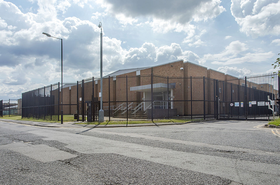A UK digital minister has said the country is "significantly behind" for mobile connectivity compared to other countries.
As reported by Verdict, Chris Bryant, minister of state at the Department for Science, Innovation and Technology, made the comments at an event on Monday that was part of the Labour Party Conference.
Bryant made the comments while speaking at Labour's Fringe event ‘Tech-Driven Economic Growth: The Role of Connectivity in Unlocking Opportunities for All’.
“We are behind on mobile, significantly behind and that is a problem for us, as there’s so much that we could do with 5G standalone when we get there," he said.
“I’m lucky if I get 3G in parts of my patch, and that’s problematic. We need to be far more ambitious in this field. Of course that requires an industry where people continue to invest in the long term.”
A report carried out by analytics firm Opensignal last year found that 5G coverage was only available for around 10.1 percent of the time, compared to Puerto Rico with 48.4 percent. The UK lagged behind most nations for that metric, including Slovenia, Hungary, and the Philippines.
Opensignal also revealed that the UK was near the bottom of the table for average download and upload speeds, clocking scores of 124.4Mbps and 4.2x respectively. For comparison, South Korea clocked average download speeds of 432.5Mbps.
Although the UK's telcos launched 5G services back in 2019, the technology was initially based on 5G Non-Standalone (5G NSA), which effectively worked off of the 4G Core network.
Vodafone launched its 5G SA service last year, but Virgin Media only launched 5G SA in February, while EE went live with its service earlier this month.
The country's other network operator, Three, is the only carrier not to launch 5G SA services and seemingly hasn't made any plans to.
Bryant also reportedly expressed concern for the country's planned 2G shutdown, which is set to take place by 2033. Telco Virgin Media O2 kicked off its phased switch-off of the service in June.
A fortnight ago, Bryant also urged the country's broadband providers to share infrastructure, amid increasing concern around the number of telegraph poles being installed across the country.
Bryant said that the country should look to "end the deployment of unnecessary telegraph poles."
In response to claims that telcos are overbuilding these masts, Ed Taylor, director of public affairs at CityFibre, who was on the same panel as Bryant this week, said the company is not “throwing up 90-foot telecoms masts” as suggested by Bryant.
Telegraph poles are a common sight across the UK, and have been favored by telcos due to the fact they are quick and relatively cost-effective to deploy in areas where it's difficult to lay new underground cables.







